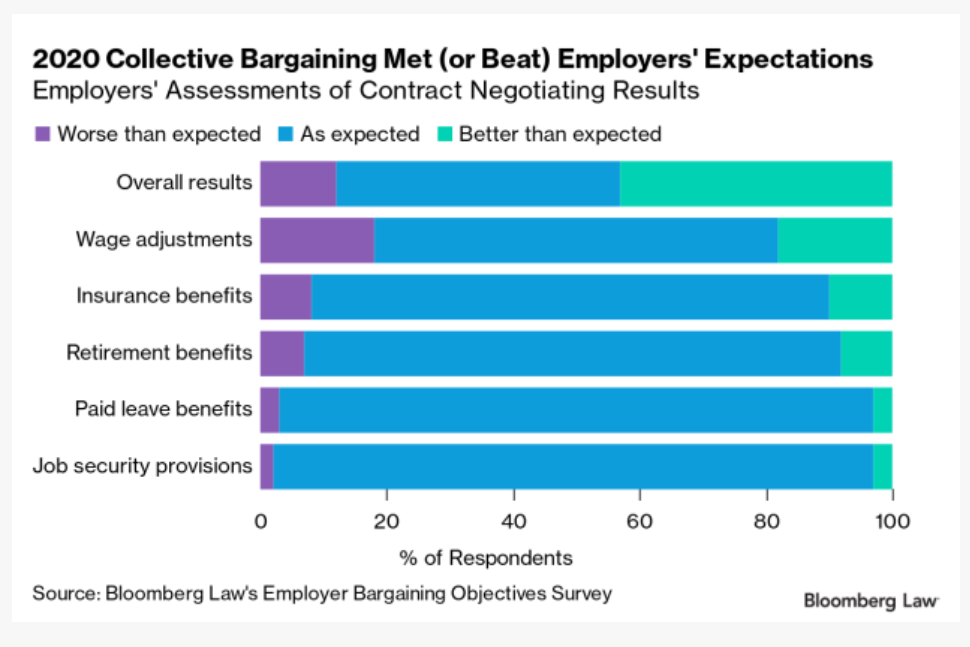The pandemic affected virtually every aspect of the employment relationship in 2020. Employers’ collective bargaining with unions was no different. Indeed, “virtual negotiations” became the norm in many places (previously unthought-of) and law changes related to the pandemic made 2020 a year like no other at the bargaining table. There appears to have been another affect: Employers fared better than they expected in their union negotiations last year
According to a survey conducted by Bloomberg Law, ANALYSIS: Labor Negotiators Say 2020 Didn’t Faze Them So Easily, among various companies who bargained new union agreements last year: “Only 12% of employers said that their overall collective bargaining experience in 2020 didn’t go as well as expected. Meanwhile, 45% said that theirs did go as expected, and the remaining 43% said that their overall results were better than expected… [Further,] 63% said the wage adjustments they agreed to were at about the level they had expected to provide at the outset, while 18% felt their negotiations yielded wages that were lower than expected and 18% felt they were higher than expected.”
Here is a Bloomberg Law chart summarizing the data:
While that may be welcome news for companies, many of these outcomes last year likely were based on the economic uncertainty stemming from an economy that was trending downward, state shutdown orders, and no known date for a vaccine. At the moment, 2021 is shaping up to look a lot different, as most states have relaxed or are relaxing business restrictions, the economy generally is picking up steam, and the vaccines are being rolled out and are available to most people. In addition, the labor law landscape – which affects the leverage companies may have at the table – is looking to be much friendlier to unions. For example, the Protecting the Right to Organize Act currently is being considered by Congress but stalled in the Senate and, if enacted, would eliminate companies’ right to hire permanent replacements in a strike. Needless to say, that could lead to a proliferation of work stoppages initiated by unions seeking better deals for their members.
Bottom line: 2020 seems to have been friendly to many companies in the context of achieving their objectives at the bargaining table. However, it remains to be seen if all the changes underway and on the horizon in 2021 will yield the same result. Stay tuned.















